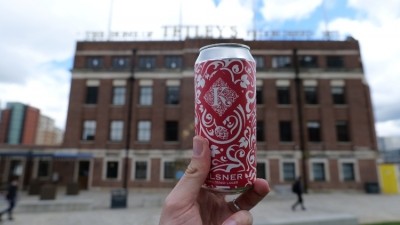James May: pubs must be in top gear to survive

As co-owner of the Royal Oak in Swallowcliffe and the face and brains behind James Gin, a range of gins with savoury flavours, he doesn’t believe pubs have a divine right to survive and that people must want them as well as them functioning correctly.
Here, he tells The Morning Advertiser what he thinks about pubs, Government and why cask ale is great when it is kept local.
The history of the great British pub is a trading aspect exploited cleverly by many licensees but May believes the fact pubs have always been important doesn’t mean they should survive by that virtue alone.
“I did a thing on TV a week or two ago about pubs on Newsnight because another one of those surveys had shown another 5m pubs had closed or whatever,” he states.
“I took the view I often take, which is that we’re slightly oversubscribed with pubs in the modern world and there’s a bit of a cull going on and it’s the bad pubs that tend to disappear.
Pubs have to work
“Really good pubs will always survive because they do nice food, they’ve got a nice atmosphere, they’re clean, they serve nice beer, they’ve got decent wine – all that sort of stuff.
“One of the things I said, and people got very annoyed with me about it, was that we shouldn’t think of pubs being an essential part of our heritage or an important tradition or part of our national identity, because they’re not monuments, they’re pubs and they have to work.”
He argues it would be very easy to say that proper cask beer is part of the great tradition of the British pub but he refuses to believe people drink beer because it’s traditional or because it’s British but rather they drink it because it tastes nice.
On locale, particularly of cask ale, May explains his stance.
“The old Fuller’s brewery is half a mile from my house in London and the pub around the corner is a Fuller’s pub – and the beer is very nice – but if you go to the pub that’s right next to the Fuller’s Brewery, it’s even better,” he says.
“Even a mile makes a difference to the way the beer tastes. A lot of it could be down to how well the landlord keeps it, obviously, but proper beer, cask beer, almost wants to be a relatively local product so there isn’t really much excuse for it to be a global thing.
“Of course that’s how it started out. In the early days of the public house, a family would make beer and then they would become the house that sold beer and because it didn’t keep, beer was always local up until the 19th century.”
Massive struggle
On the idea of the Government helping the on-trade, May says he is slightly wary because he is of the view that the Government “doesn’t really know what it’s doing”.
He continues: “For example, their advice on car buying all turned out to be bollocks really so I don’t think I want them trying to work out what would save the pub.
“The good pub will save itself but I acknowledge it is a massive struggle.”
On pubs adapting to the current economic climate, the Royal Oak is 85% a restaurant and most people go there to eat and although some farmers and walkers go there for a drink, it’s not a ‘boozer’, according to May.
He says: “Aside from a few corner-of-the-street boozers that have survived and do well, most pubs have to do decent food to be successful. That and clean bogs and all the basic stuff really.
“For a long time, pubs got away with being a bit tatty and were due a bit of an update.”
- If you want to read about May’s gins, his pub and the surge of young cask beer fans, see The Big Interview with James May by clicking on the link






